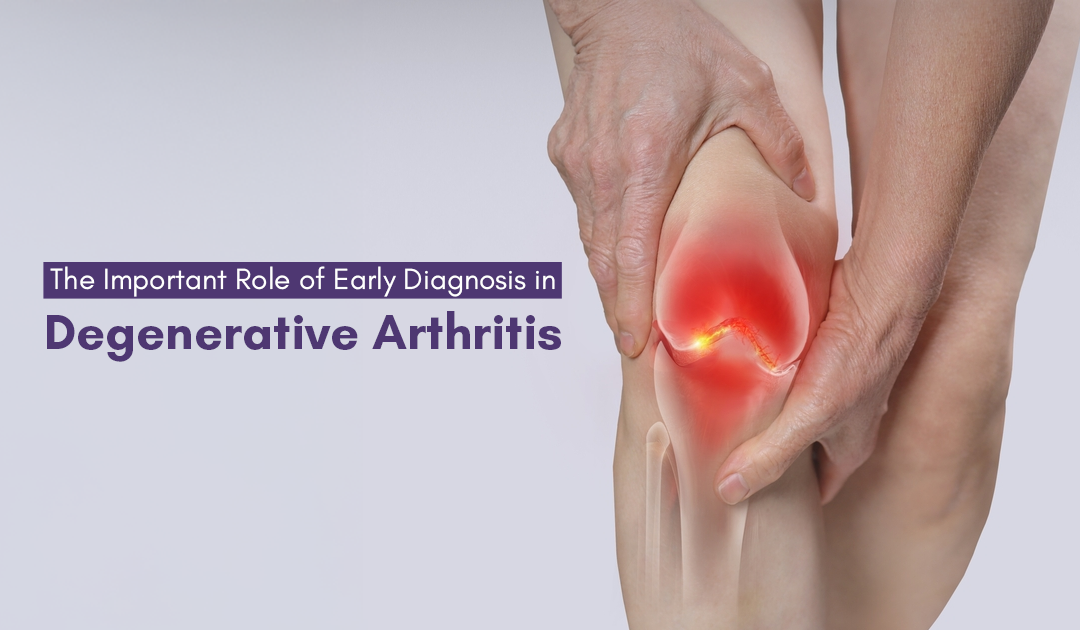Osteoarthritis, also known as degenerative arthritis, is a form of chronic joint disease caused by the increased breaking down of cartilage and bone within joints. Degenerative arthritis is one of the most common types of arthritis, which impacts millions of individuals across the world, especially when they age. While degenerative arthritis usually impacts older adults, it may also affect young adults because of joint injuries, being overweight, or genetic factors.
What is Degenerative Arthritis?
This disorder usually affects the smooth cartilage area covering the ends of the bones in the joints. This cartilage acts as a cushion and permits free movement of the joints. However, in degenerative arthritis, this protective cushioning goes away eventually, causing friction between bones at the time of movement. Therefore, the joints that are affected turn painful, stiff, and swollen after some time. The commonly affected areas of the joint include joints in the hands, knees, hips, and spine.
Why is Early Intervention Necessary in Degenerative Arthritis?
In degenerative arthritis, early intervention is important for many reasons, as it may easily affect the development of the disorder and may impact the overall quality of life for the affected people. Here are seven reasons why early detection and diagnosis is helpful for degenerative arthritis:
- Gradual Development of Disease: Degenerative arthritis, also known as osteoarthritis, consists of the eventual wear and tear of cartilage found in the joints. Early intervention here can help slow down this process. By incorporating treatments early, which may include physical therapy, medications, and lifestyle changes, the damage to joints can be reduced significantly.
- Pain Management: One of the main symptoms of degenerative arthritis is joint pain. Early intervention provides for the strategizing of pain management techniques, consisting of non-steroidal anti-inflammatory drugs (NSAIDs) or analgesics. Treating the disorder early may help in managing pain better, allowing smoother functioning in daily activities and better life quality.
- Enhanced Function of Joint: Being a part of early treatment can help in maintaining or even enhancing the function of the joint. Exercises such as physical therapy can make your muscles stronger around the joints, allowing improved stability. This method can assist individuals in maintaining their mobility and independence for a longer period.
- Preventing Secondary Complications: Delayed intervention may lead to other issues, including joint deformities or other musculoskeletal problems caused by altered movement patterns. Through early addressing of the degenerative arthritis symptoms, the risk of these complications progressing may be minimized.
- Psychological Perks: Functioning with severe pain and a stiff body may even lead to mental disorders, including anxiety and depression. Early intervention may assist in removing pain and bettering movement, which may positively impact mental health. People who attempt to take care of their disorder every day are generally more positive about their prognosis as well.
- Self-Management and Education: Early intervention usually consists of information about the disorder, encouraging individuals to take control of their health. Comprehending the nature of degenerative arthritis permits individuals to decide on important aspects such as their lifestyle, physical exercise, and treatment options.
- Tailored Treatment Plans: Early diagnosis of degenerative arthritis grants healthcare professionals the ability to create personalized treatment plans depending on the needs and development of the affected individual. This personalized method may cause better outcomes.
In its essence, early intervention in degenerative arthritis is extremely essential for managing symptoms, minimizing the development of the disease, and improving the overall quality of life. By addressing the condition as quickly as possible, individuals may maintain enhanced function in their joints, experience less pain, and reduce the risk of complications, leading to a healthier and more active lifestyle.
If you or your loved one is experiencing the symptoms of degenerative arthritis, make sure to speak to your healthcare provider for early intervention so you may experience a better quality of life sooner.
